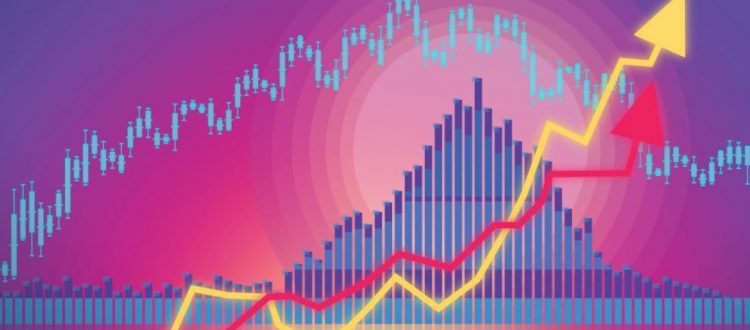
- The Problem with DIY Investors
- The Rise of Trading Apps
- Why Pro Financial Advice is Here to Stay
- Main Investing Themes
The Problem with DIY Investors
The flood of young DIY investors who started trading over the last few years are running into problems that are souring their experience with brokerage platforms.
Investors who started trading online over the last three years are more likely to come up against issues like website malfunctions and trouble processing transactions than investors who have traded online longer. They’re also more likely to switch brokerage firms more frequently, and they’re less likely to be financially healthy than more experienced investors.
The Rise of Trading Apps
Armed with flashy mobile trading apps and free stock trades, millions of young Americans are opening up brokerage accounts online and putting traditional financial advisors on notice.
These people represent a new breed of retail investor that is younger, earns a lower income and is more racially diverse than any investment cohort the industry has seen.
Fintech platforms like Robinhood Markets Inc. and the payments giant PayPal Holdings Inc., which have released plans to offer retail trades, are catering to exploding demand for online accounts with no investment minimums.
At the same time, the growing popularity of Robinhood and other trading apps has spawned a new community of potential advisory clients, including self-directed investors who have seen their accounts grow to levels that now command more professional advice, and investors who have been whipsawed by the meme stock frenzy.
Why Pro Financial Advice is Here to Stay
Today, DIY investors are reaching thresholds that are starting to make professional financial advice more appealing.
As self-directed investors have been experiencing the ups and downs of the financial markets, the more established financial planning industry is starting to catch some of the fallout in the form of investors realizing there are limits to what can be gleaned from most trading apps and digital platforms.
“We’ve found that some of the early adopters of Robinhood are moving on to more stable and legacy systems like Fidelity and Schwab,” said Scott Smith, director of advice relations at Cerulli Associates.
As a wealth advisor at Bridgewater Advisors, Ian Harvey is not surprised that self-directed investors eventually come around to the notion of wanting some help. “This speaks to the importance of defining the interconnectedness of our clients’ lives and their investments,” he said. “While many can invest on their own, how those investments tie to their ability to achieve goals, are weaved into tax and estate planning, and pair with proper risk management tools are important considerations not yet handled in concert on digital platforms.”
Jamie Ebersole, founder of Ebersole Financial, said the growing appeal of human advisors could be a sign of investors becoming more concerned with stock market valuation levels. “We are seeing more and more younger clients coming to us looking for advice specifically related to today’s market conditions,” he said. “While many DIY investors are comfortable investing with minimal advice while the markets and the economy are performing well, in times of turbulence and uncertainty, like today, they are looking for someone to provide insights and guidance so as to avoid making big mistakes.”
Thus, there has been a significant increase in new clients seeking help with portfolio decisions as the pandemic has unfolded and the economy has moved through its various phases of recovery.
Some advisors may argue that a large number of DIY investors aren’t looking for professional advice yet and wouldn’t make for profitable clients. While that’s still true, the situation is changing quickly and there should be a wake-up call for advisors that have heard a lot about the coming wave of next-gen investors but have yet to take meaningful steps to address them.
Main Investing Themes
According to BlackRock’s research, the asset manager says the new consumer, an industrial renaissance and medical innovation are areas where changes have exposed ‘underestimated investment opportunities.’
BlackRock is homing in on three themes that it describes as “permanent transformations unlocking exponential growth opportunities” that could give financial advisors new diversification plays.
The new consumer area recognizes millennials as “major spenders driving the global economy,” coupled with the increasing spending power from developing markets. The research says the new consumers’ “unique preferences for decentralized digital ecosystems and greener goods could transform commerce.”
Alex Eldemir, BlackRock’s global head of factors, sustainability and solutions strategy, said that while the pandemic slowed economic activity, “it couldn’t slow structural shifts.” “Millennials have entered their peak spending years,” she said. “Emerging market consumers and millennials are driving more than 50% of global spending.”
The industrial renaissance is a theme that was boosted by the Covid-19 pandemic, which forced wider adoption of technologies and innovation to enable remote work and virtual connections. The supply chain issues that resulted from pandemic lockdowns have highlighted the potential of that industrial renaissance.
With regulations, technology, and consumer demand listed as drivers of the industrial renaissance, it is being fueled by multiple forces and will be long in duration.
The medical breakthrough theme is also tied to the pandemic and the example of the pace of development of a Covid vaccine.
At RiXtrema we offer a wide range of products to help financial advisors satisfy the needs of their clients. You can learn more about our tools on our website rixtrema.com and sign up for a free trial for any of the products.







